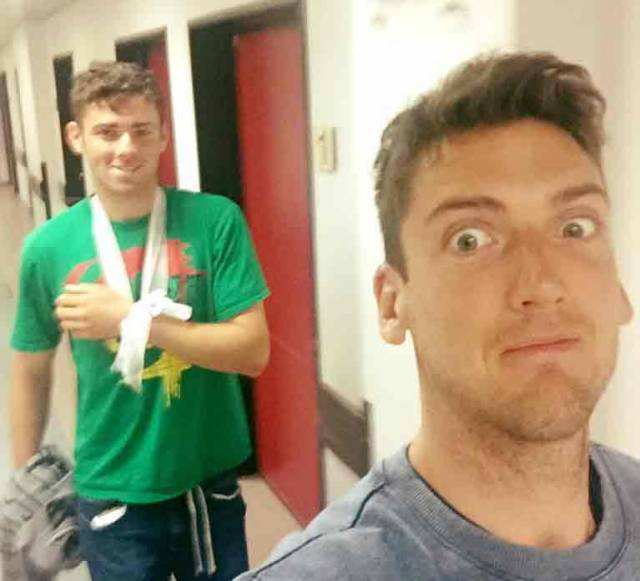There has been a set back for Northern Ireland's Ryan Seaton and his new crew Seafra Guilfoyle of Royal Cork Yacht Club at their first world championships in the 49er class.
Guilfoyle had a bike accident on the eve of the Portuguese event and attended hospital in Porto for a hand injury ruling him out of the championships. After six months of hard work training for the event – and the stated aim of Gold in Tokyo 2020 – Carrickfergus Sailing Club's Seaton has opted to sail instead with the team coach, Nikolaus Resch.
Irish Results
This new impromptu combination are lying in 22 place in the 81–boat event, well ahead of the next of five Irish boats, Sean and Tadgh Donnelly of the National Yacht Club who are in 54th place. Next is Robert Dickson and Sean Waddilove in 60th with Matthew McGovern and Robert Gilmore 64th. Mark Hassett and Oisin Driscoll are 73rd and Cian Byrne and Patrick Crosbie are 75th.
Afloat in Porto, Capsizes, gear failures, and even seasickness beat up numerous crews, but none of it fazed newly crowned European Champions Dylan Fletcher and Stu Bithell at all. The British Olympic skipper and his new-for-2017 crew (a former Olympic medalist in the 470 Class) couldn’t put a foot wrong today, taking all three races on the Alpha course and carrying a four-point lead into the Gold Fleet action tomorrow morning.
It was moving day for Diego Botin and Iago Lopez, the young Spanish duo notching a 2,3,5 score to overcome yesterday’s UFD and move into second place overall – their best ever current position at a Worlds. For Botin the position is good but he knows it doesn’t mean much, especially with two boats tied with them on points. “Everything will be decided tomorrow and Saturday, we’re basically starting over now,” said Botin, who nearly threw away Race 5 with a capsize at the top mark. “I dropped the tiller at the last tack at the top mark so we flipped, but we were lucky the wind was so strong and so many of the other boats had problems,” said Botin. Lopez explained that the runs were extremely tough to handle; “The waves were nasty downwind, requiring big eases of the gennaker every five seconds or so,” he said. “Also finding a flat spot for the gybe was rare, and that’s why you saw so many teams overstanding the bottom marks.”
The strong German sailors we wrote about yesterday continued to excel in the big breeze, with two veteran and two youth teams advancing to Gold Fleet at the end of the day – double the number of any other nation. While the success of Schmidt/Boehme (3rd) and Heil/Ploessel (6th) after Day 4 surprised no one, youth sailors everywhere should rejoice to see two young German teams advance to the Worlds Gold Fleet for the first time. Nils Carstensen (22) and Jan Frigge (23) pulled an ultra-consistent 8,7,7 in the ultra-chaotic conditions to take 15th place after 6 races, while Jakob Meggendorfer and Andreas Spranger squeaked through into the semi-final round in the last available position – 20th place.
The 20 and 21 year old phenoms seem to eat big breeze for breakfast – they showed poise and speed far beyond their years in Kiel when the winds came on at the European Championship, and they continued their heavy weather excellence today in Porto despite several capsizes and a major equipment issue. “Strong wind is so fun, but we didn’t expect to be so fast against some of these teams,” said Meggendorfer. And fast they were; the duo recorded some of the highest speeds on the water today, recovering well from their capsizes to advance to the next round. “Our coach says boat speed is king, so even if we have some problems, at least we have that!” said Spranger.


























































